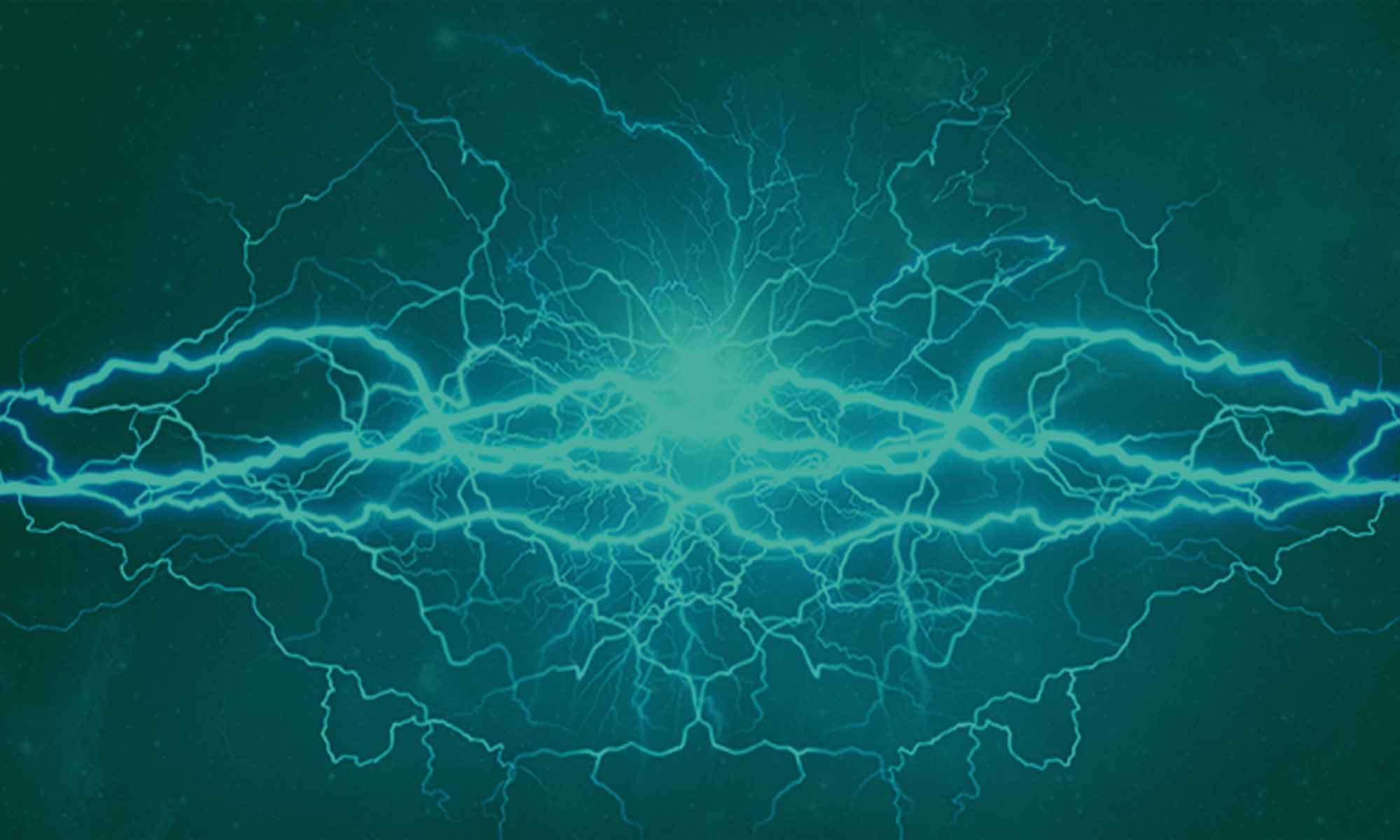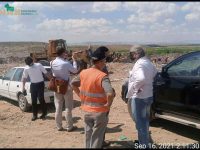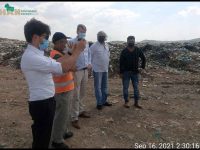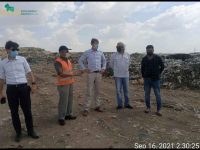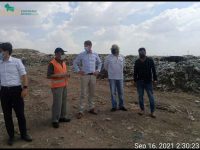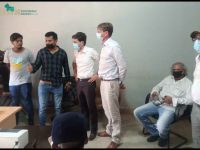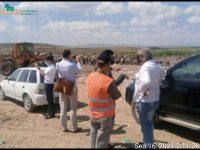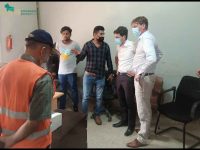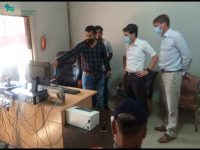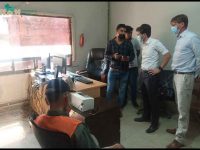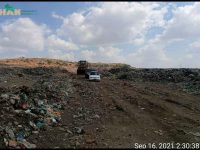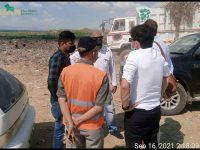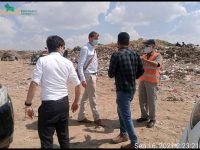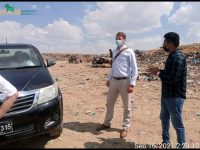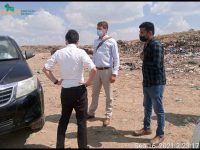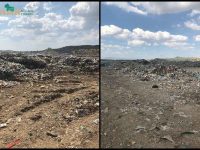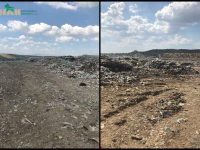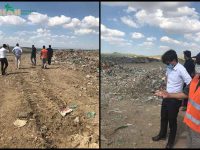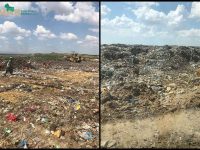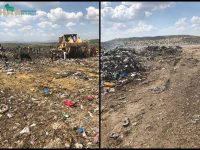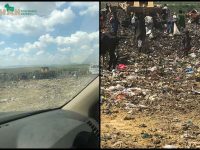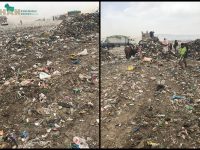Khan Renewable Energy(Pvt.)Ltd.
Karachi, Pakistan.
1,500tpd High Efficiency Waste to Energy (WtE) facility for Karachi, Pakistan.
As populations grow, waste production grows. While more than one-third of waste in high-income countries is currently treated and reused, over 90% of waste in low-income countries is left untreated, ending up in landfills. The methane emitted from these landfills speeds up global warming at a rate 84 times more potent than CO2 (over 20 years) and 21 times more potent over 100 years, fast turning untreated waste into one of humankind’s greatest threats through soil, water and air pollution which all affect our environment and, in the end, our own health.
In Pakistan, approximately 87.000 ton per day (TPD) is of municipal solid waste (MSW) is generated. Most of it finds its way to the landfill but still huge portions end up in the environment directly. Unfortunately, landfills do not meet the standards for safe storage of this MSW. Methane from untreated waste is escaping uncontrollably causing Green House Gas (GHG) emissions but may also lead to uncontrolled fires on the landfill. These fires produce toxic fumes which are spreading over the city causing public health issues. Besides that, toxic leachate is floating into the soil contaminating groundwater directly and drinking water indirectly causing more public health issues.
Our company Khan Renewable Energy (Pvt.) Ltd. (KREL) is a Special Purpose Company (SPC) established to address these issues and replace landfills with advanced waste-to-energy (WtE). KREL consist of strong and knowledgeable partners in the field of waste management and WtE plants. KREL has the ambition to develop and construct a world-class “beyond best available technology” facility for (WtE) in Karachi, with a capacity of processing 1,500 tons of waste per day, producing around 40 MW of electricity which it will sell to the grid.
Karachi serves as the capital city of Sindh and has an area of 3780 km2. Karachi, due to its favourable location, acts as the hub of transport and centre for industrial and commercial activities. Thus, it has become the ‘melting pot’ for people across Asia, making it the world’s sixth most populous city, with a population of around 15 million people. According to the 2017 census, Karachi’s population is growing at a rate of 2.49%, with an average household size of 5.8. With its location on the Arabian Sea, Karachi serves as a transport hub, and is home to Pakistan’s two largest seaports, the Port of Karachi and Port Bin Qasim, as well as Pakistan’s busiest airport, Jinnah International Airport. Yet the city is marred with the crisis of solid waste management. Karachi generates more than 16,000 tons of solid waste per day of which around 11,000 tons are land filled. Currently this waste is land filled without any proper treatment in the various landfills and dumpsites in the Karachi area. This waste does not only pollute the environment and drinking water but also enhance to spread pandemic diseases specially in the monsoon season. Some waste piles are visible in different areas besides the rivers and canals. Karachi has all the strength and opportunities to build up an integrated and modern system of solid waste management which can help reduce the negative impact of waste on the environment and human health. While doing so, Karachi can increase the rate of recycling, reduce the need for virgin raw materials and with the natively produced waste by using the advanced HE WtE technology to provide clean base-load electricity to the city of Karachi.
The existing dumpsite Deh Jam Chakro is approaching full capacity in the near future. The population of the Karachi metropolitan area produce an increasing amount of waste each year, while alternatives for land filling are not in place or not sustainable. By turning waste into energy using the High Efficiency (HE) WtE technology from our technology partner HARVEST (Known as Awect), we will divert waste away from the landfill while producing base-load power using indigenous waste from Karachi as feed stock. The electricity produced from this indigenous feedstock can replace imported diesel-powered power production with a clean and sustainable renewable alternative. At the same time, we will be avoiding the emission of CO2 and other harmful Green House Gasses (GHG) emitted from landfills or by open burning of waste. No more land will be needed to build new landfills and leaching waste cannot pollute the soil and water anymore, thereby reducing the impact of waste on the human and natural environment.
The HARVEST (Known as Awect) HE WtE technology was developed and validated in Amsterdam with the Amsterdam municipality, the Dutch government and is internationally seen as the most efficient waste incineration technology operational today. In developing this Project, we will bring the experience gained from operating integrated waste management from the Netherlands to Pakistan. We will generate a lot of local direct and indirect jobs, transfer technical and operation knowledge to Pakistan and while solving an environmental issue at the same time.
In addition, we believe that with the introduction of the High Efficiency WtE plant in Karachi, we can be a catalyst for a more circular economy in Pakistan modeled after the eco-park established in Amsterdam, the Netherlands where our partner HARVEST (Known as Awect) has its reference plant and waste management operations.
We believe the introduction of this landmark Project for Karachi will be beneficial for the people on multiple fronts. Therefore, we seek your support in establishing this 1,500tpd HE WtE plant which will deliver an environmentally clean and economically sustainable long-term solution to treat end-of-life waste for Karachi.


